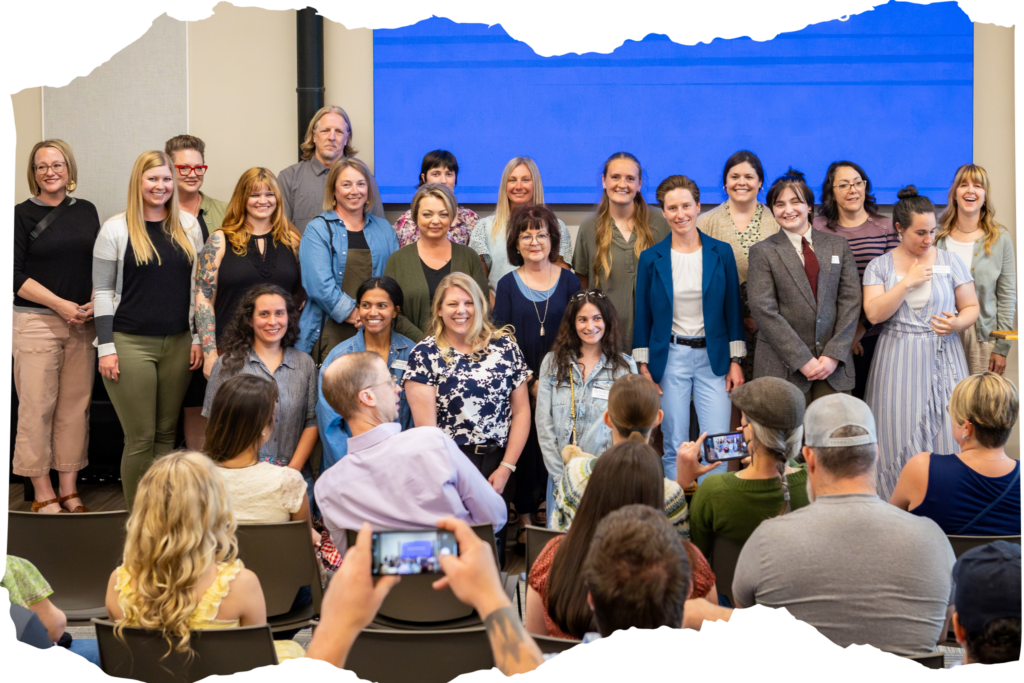Human Rights Education Fellowship
Educating for Justice and Joy
The Wassmuth Human Rights Education Fellowship supports preschool through university-level educators to explore how to create just and joyful learning communities.
Fellows will convene for a week in the summer and regularly throughout the academic year to collectively deepen their understanding of human rights. Through interactive workshops, guest speakers, and collaborative initiatives, fellows will develop their identity, skill, intellect, criticality, and joy as human rights educators.
Each fellowship year will also play a key role in building a solid and ever-growing network of educators who consistently incorporate human rights content into their instruction.
Fellows will be provided with books, materials, and other resources. Educators can also register for up to 6 graduate-level continuing education credits.
Learn More
Wassmuth Human Rights Education Fellowship, 2026-27 Cohort
Applications Open Now
How can we co-create just and joyful learning communities? The Wassmuth Center for Human Rights invites you to join us in exploring this question.
Educators from across the Treasure Valley and beyond are invited to apply for the Wassmuth Human Rights Education Fellowship. This Fellowship brings together a dynamic cohort of changemakers who are building a vibrant, expanding network of human rights educators across our state.
Together, we will better understand human rights and explore practices and ways of being that ensure our classrooms, schools, and communities are rooted in dignity, strengthened by diversity, guided by equality, and sustained by joy.
Application Deadline: March 15, 2026
What to expect:
- An incredible learning community of diverse educators
- Workshops twice a month to connect, learn, and grow together as educators committed to human rights
- Creation and implementation of a unique human rights initiative tailored to your own learning community
- Powerful practices to ensure everyone’s dignity is upheld and honored
- Up to 6 continuing education credits through ISU’s Albion Center
- All in-person sessions will take place at the Wassmuth Center for Human Rights, Philip E. Batt Education Building, Boise, Idaho
Treasure Valley Educator Requirements:
- 2026 Human Rights Celebration; April 23, 2026
- Summer Institute; June 14-19, 2026
- Monthly Sessions: first Tuesdays from 4:30 – 6:00 PM – Fellows only; September – May
- Monthly Sessions: third Tuesdays from 4:30 – 6:00 PM – Open to all educators; August – May
- Individual Human Rights Initiative; completed August – March
- 2027 Human Rights Celebration on April 22, 2027
Beyond the Treasure Valley Educator Requirements:
- 2026 Human Rights Celebration on April 23, 2026 – Boise
- Summer Institute; June 14-19, 2026 – Boise
- Monthly Sessions: first Thursday from 5:00 – 6:00 PM – online
- Monthly Sessions (optional): third Tuesdays from 4:30 – 6:00 PM – Open to all educators; August – May
- Individual Human Rights Initiative; completed August – March
- 2027 Human Rights Celebration on April 22, 2027
Please reach out to Emily Morgan, Education Specialist, with any questions: emily@wassmuthcenter.org
“The Wassmuth Human Rights Education Fellowship is one of the most enriching and joyful professional development experiences I have ever had. By empowering teachers to delve into the topic of human rights and subsequently grow a network of experts, the fellowship is planting the seeds for a better future. Our students deserve full access and attention to their rights, and this fellowship is a step in making that a reality.”
-THOMAS PIRC, SOCIAL STUDIES TEACHER AT MERIDIAN MIDDLE SCHOOL
Resource Portal
Follow the link below to access the resource portal for current Human Rights Education Fellows
